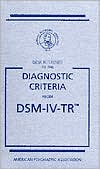Interpersonal Process in Therapy: An Integrative Model
Therapy that effects change must authentically involve you, the therapist. Highly engaging and readable, INTERPERSONAL PROCESS IN THERAPY: AN INTEGRATIVE MODEL brings together cognitive-behavioral, family systems, and psychodynamic theories into one cohesive framework, all the while showing you practical ways to alleviate your concerns about making a "mistake". Newly revised and edited, this contemporary text features new case examples, updated references and research, clinical vignettes, and...
Search in google:
This resource for student therapists explains how to use the therapeutic relationship to help clients change. Using a wealth of real life examples including clinical vignettes and therapist-client dialogues, it demonstrates how the interpersonal process approach works. Sample topics include establishing a working alliance with the client, responding to painful feelings, developing a treatment focus, and terminating the therapeutic relationship. Teyber teaches at California State U., San Bernardino. Annotation ©2005 Book News, Inc., Portland, OR
1The interpersonal process approach32Establishing a working alliance433Honoring the client's resistance834An internal focus for change1225Responding to painful feelings1586Familial and developmental factors2017Inflexible interpersonal coping strategies2428Interpersonal themes and patterns2789An interpersonal solution32710Working through and termination368
\ From the Publisher"This book does an excellent job of conceptualizing the therapeutic relationship. The numerous case examples and dialogues between clients and counselors make this book a 'must have' for beginning counseling students. The breadth of theoretical components that are covered also make it an excellent choice for more seasoned clinicians. Teyber takes very complex theories and concepts and makes them understandable and applicable for a wide range of readers."- Jill Thorngren, Montana State University\ "This book provides a very articulate approach to being with clients in the room. It integrates psychodynamic, cognitive-behavioral, and family systems approaches but most importantly, demonstrates a way of being with clients in session that is genuine but also challenges clients to explore their process. The emphasis on the therapist's use of present process is critical but often not articulated in books for beginning therapists. This book allows for the beginning therapist to establish their own style while incorporating the components of the interpersonal process. Students love it!"- Adina Smith, Montana State University\ "Teyber's text offers a readable, well-designed model for therapy that draws from a variety of theoretical perspectives in encouraging therapists to work with the interpersonal process dimension of the therapy relationship to facilitate client change. The model teaches readers to identify significant themes and patterns in the client's in-session behavior, help the client recognize how these patterns function both for better and for worse in the client's life, to allow and analyze re-enactment of those relational patterns in immediate transactions between the client and therapist, and finally to generalize the re-learning from such shared experiences into the client's life outside of therapy. This model is embedded clearly throughout the chapters, supported with discussions of relevant literature, and illustrated with lively case examples including sample dialogue."- Cynthia Glidden-Tracy, Arizona State University\ "I would describe this text to a Social Work colleague as a very comprehensive text on therapy in traditional settings, and as one that translates core theories into practice with great clarity. Its strengths are the ability to present a very complex process in a highly usable format. The Therapist-Client dialogues are especially helpful. The text does a nice job with culture and gender issues as part of therapy."- Ellen Whipple, Michigan State University\ \ \








